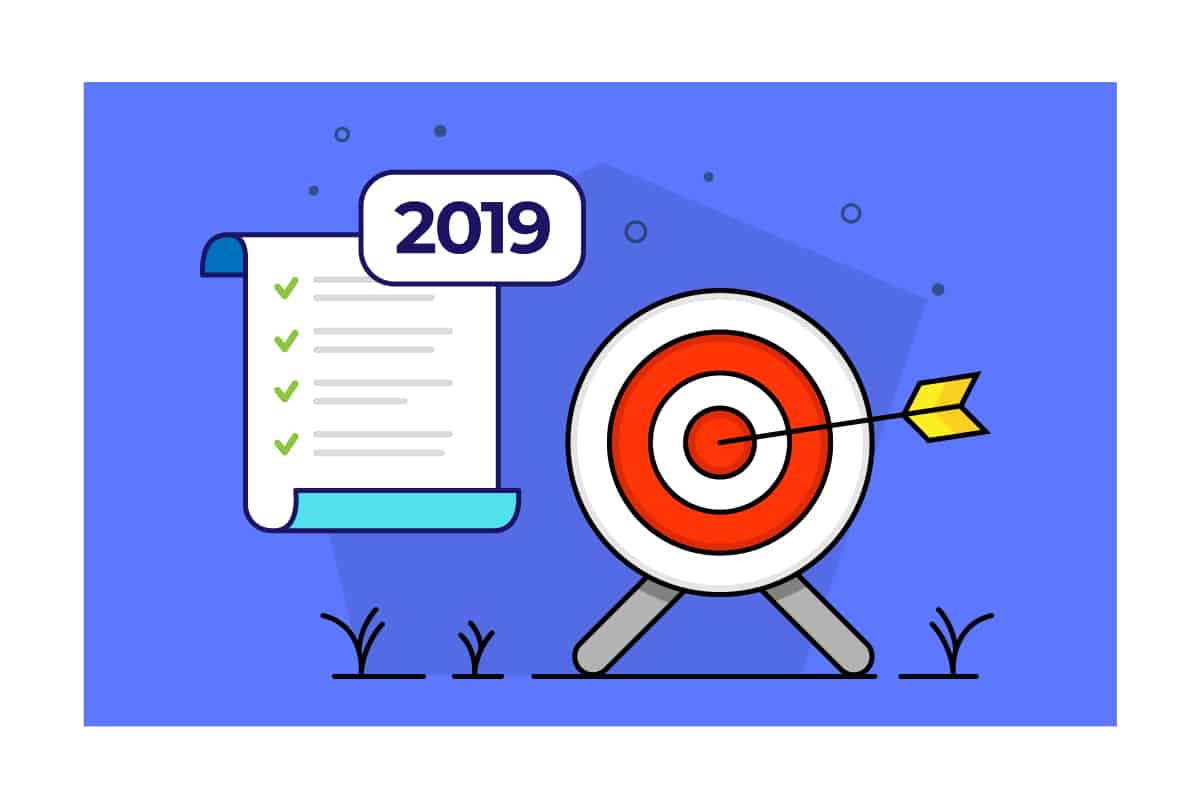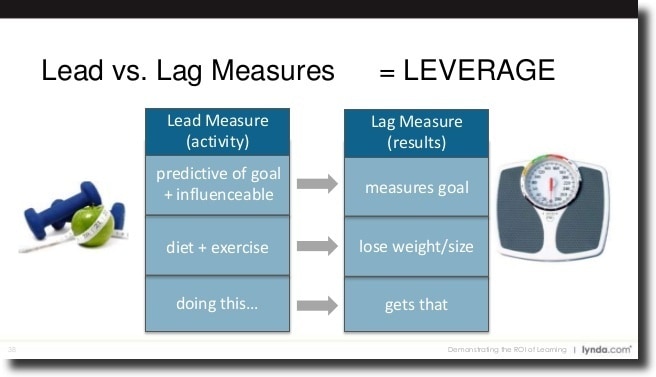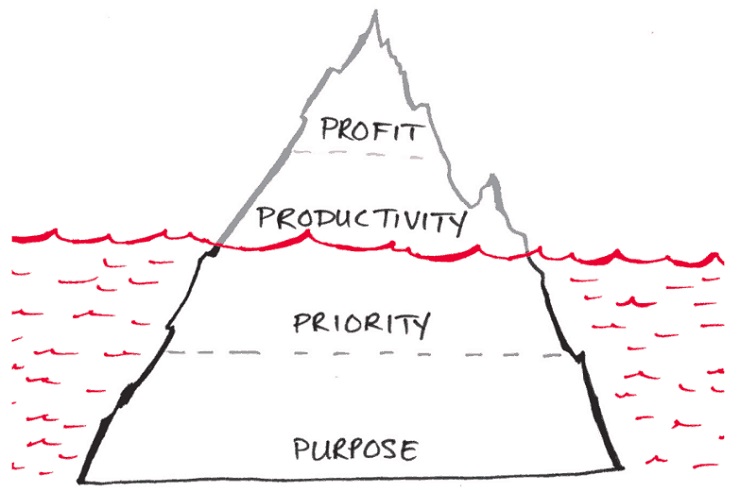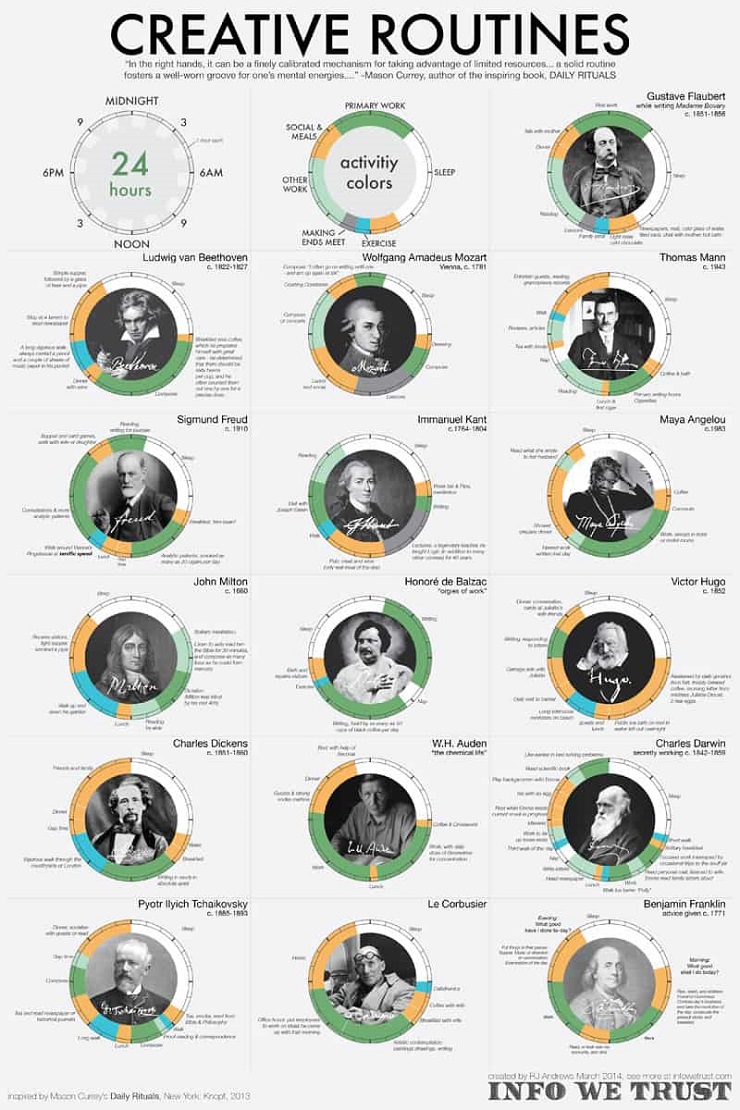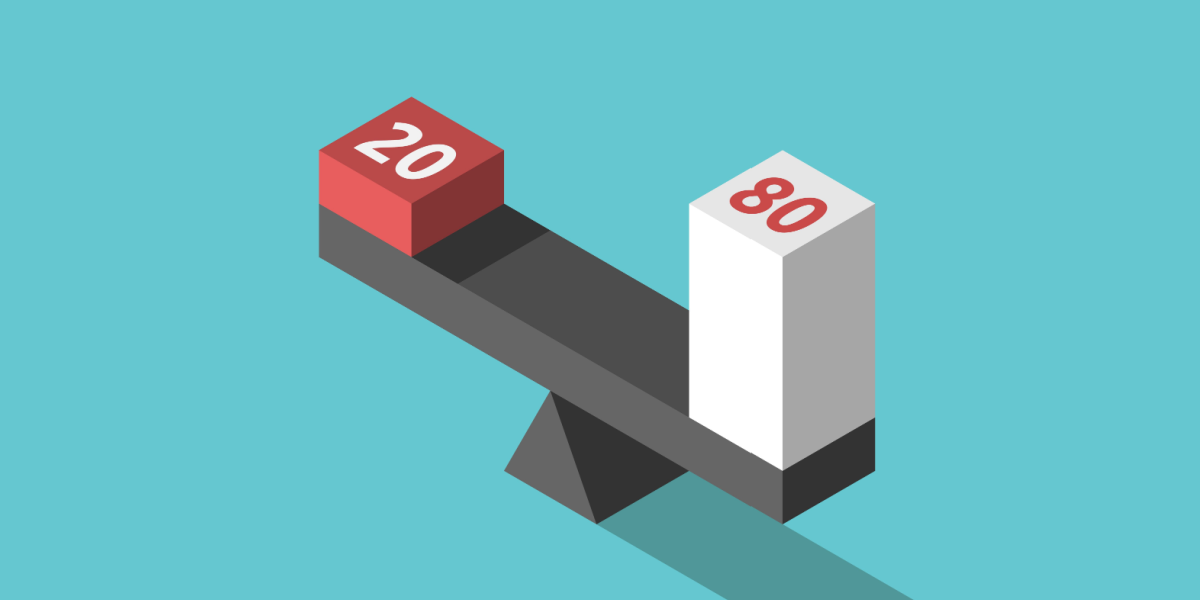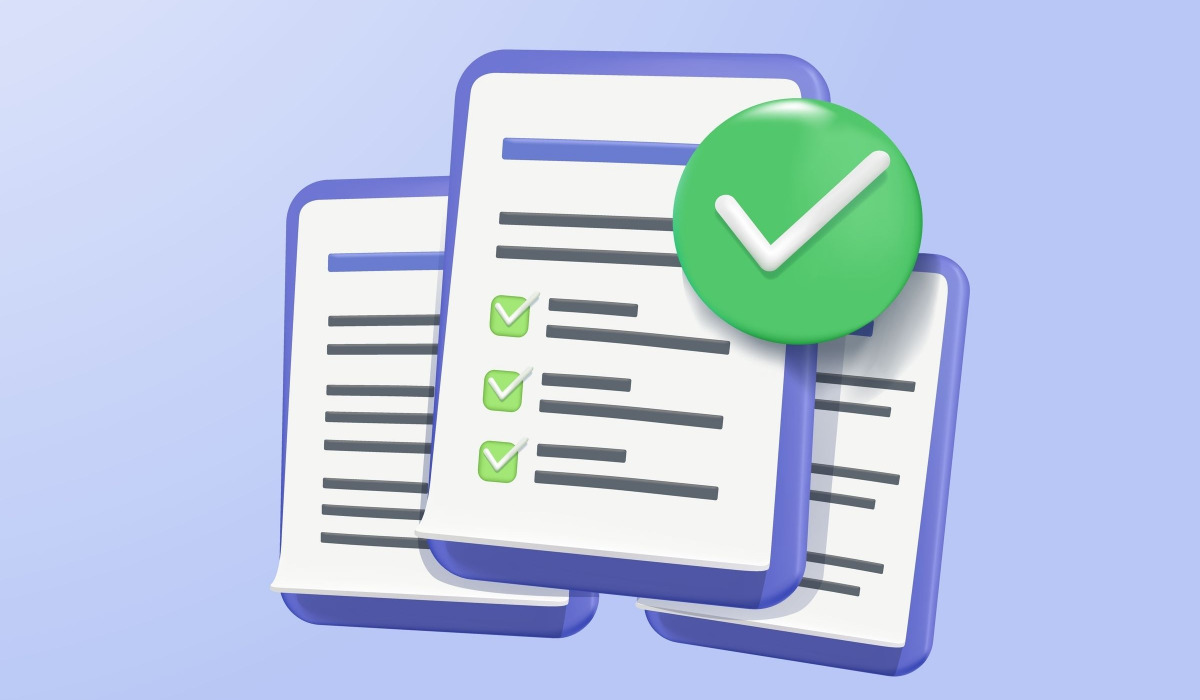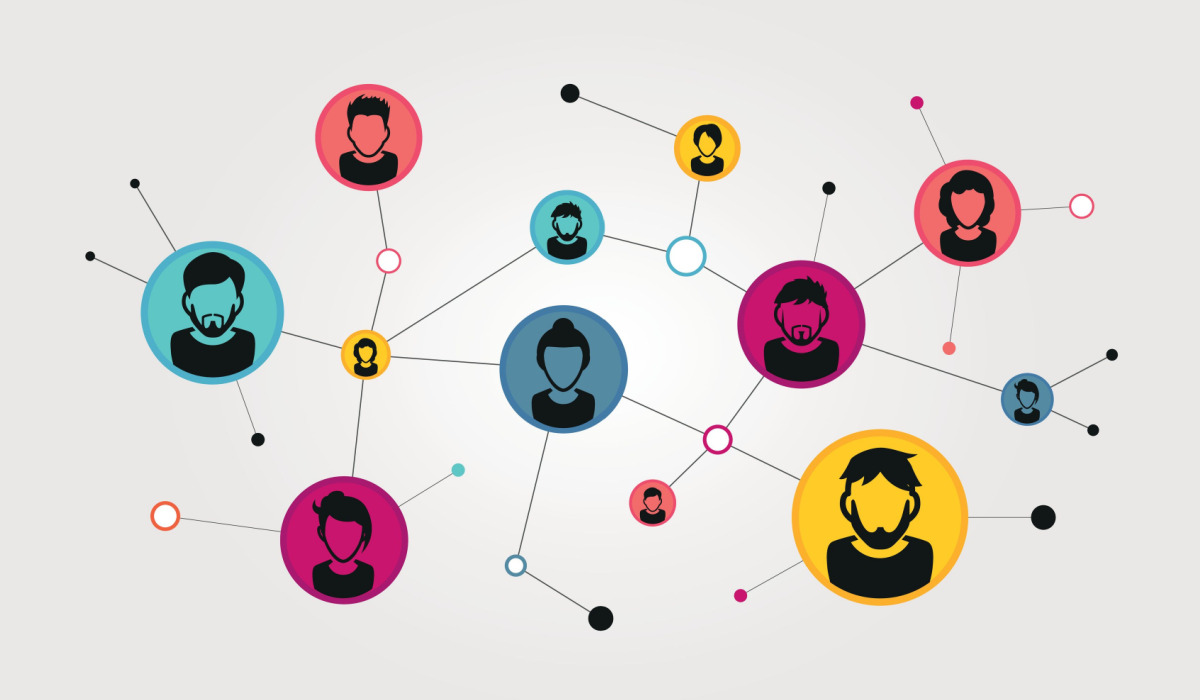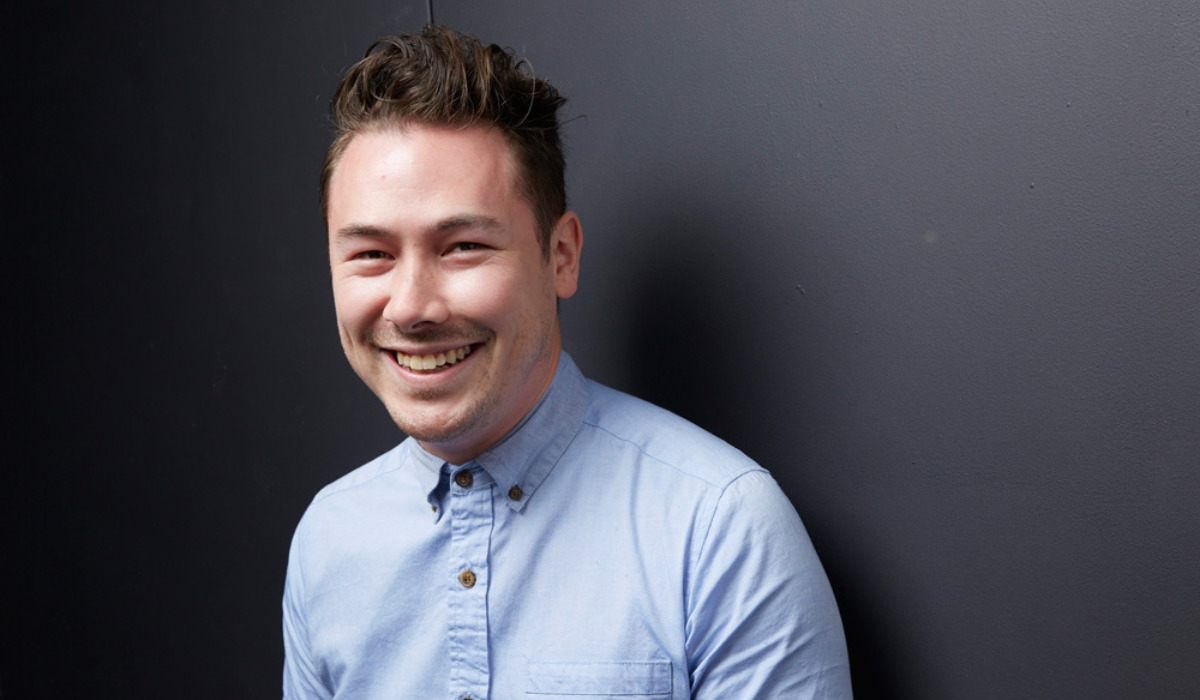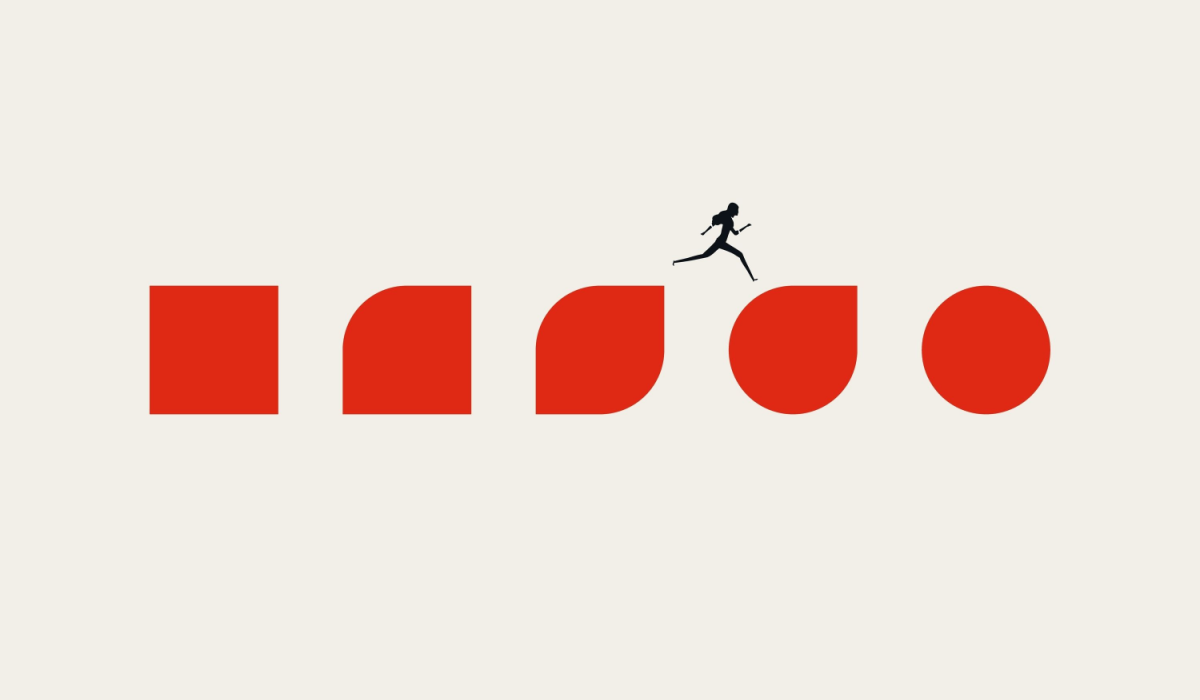Happy New Year! We’re celebrating another trip around the sun here at Foundr headquarters, and as the champagne runs dry and we start to sweep up the confetti, we’re also beginning to think about all the new and exciting challenges this coming year will bring us.
We already recapped all the cool stuff we did last year and what’s around the corner for 2019.
But the beginning of a new year always gets us thinking: How can we help you make the most out of the next 365 days, so you can crush your goals and make it your best year yet?
People often set highly ambitious goals at the turn of the year, yet they rarely achieve them. According to a study by the University of Scranton, 92% of people never achieve their goals. That’s…a lot of people. The majority of new year’s resolutions similarly fall flat.
But it doesn’t have to be that way. To help you make the most out of 2019, we’re going to take a look at five productivity tips you can start using right now to jumpstart your new year’s motivation and achieve your goals. Put down that noisemaker and check it out!
Click Here To Get Instant Access To Our Free Ebook, “The Ultimate Guide To Doubling Your Productivity In 30 Days.”
Set Your Goals Up for Success
The new year will bring with it a lot of high energy and expectations for the future. It’s a natural time for new beginnings. You’ll likely want to do everything you couldn’t do last year and add on some new goals so you can really move the needle.
Want to lose those 15 pounds you’ve been dragging since college? Check.
Read those 20 books you’ve had on your shelf for the past two years? Sure.
Learn to speak fluent Spanish so you can take that trip to Central America with your high-school best friends? Of course.
But all of these well-intentioned goals never seem to go anywhere, do they? It’s not that you lack the intelligence or will to achieve them; it’s probably more likely that you are too fixated on the goal itself instead of the activities you have to take to get there.
Instead of merely setting up ambitious goals like the ones shown above, you need to use both lead and lag measures.
Developed by Sean Covey, Jim Huling, and Chris McChesney, authors of The 4 Disciplines of Execution, lag measures track the success of your most important goals after the performance that was intended to drive them has passed. For a business, these measures are things like revenue, profit, and customer satisfaction. For your personal life, it’s the pounds lost, the books read, the minutes speaking fluent Spanish with a native speaker. When setting up your lag measures, you need to make sure they are specific and quantifiable, so you can properly judge how you did.
Lead measures, on the other hand, track the critical activities that drive (or lead) to the lag measure. For a business, they’re the hours spent talking to your customers, which drives higher customer satisfaction and profit. For your personal life, they are the diet and exercises you carry out to lose weight, the pages read, or the hours you spend studying your Spanish.
In other words, instead of fixating over your goals (lose 15 pounds), you focus on the tasks that lead to that goal (avoid sugars, eat not more than 50 grams of carbs, drink not more than 1 beer per week, etc.). Then, once you’ve take those actions, you can stack up the outcomes and judge whether you’ve got the right steps in mind.
The lag measures (your traditional goals) matter, but the actions you take towards them matter even more.
Define Your Purpose
When you have a few sets of problems you want to overcome, it’s relatively simple to define the goals that will help you. If you’re starting a business, your goal could be to make $10,000 of monthly revenue by the end of 2019. Easy peasy.
What if you have multiple problems you want to tackle? If you want to start a business that demands no more than four hours a day and makes you $10,000 in profit, what do you do? What if you want to trim down the extra 15 pounds from your belly, but you also want to quit smoking? Not so easy.
You could potentially achieve both goals simultaneously—work little and make lots of money, quit smoking and lose 15 pounds—but it’s much better to start with one goal and get it done before going after the next one. So which goal do you focus on? To answer that, you’ve got to know your purpose.
Behind every goal, there’s a deeper purpose that leads you toward it.
The question, therefore, is what’s your ultimate purpose? What’s the burning desire behind your yearly goals?
If you don’t want to work a lot because you’ve had physical or emotional issues resulting from your workload, then attaining your low-pressure lifestyle would be the best one to pick, and thus the goal should be to sustainably work fewer hours. Then worry about getting your profits up later.
If, on the other hand, you have a lot of debt you need to pay down ASAP, hitting the five figures of monthly profit might be your best bet.
What happens often, unfortunately, is that you start with two apparently different goals, and end up completely overloaded with the burden of hitting them both. You end up confused, stressed, and disappointed.
“I can’t get things done, I’m a mess, I can’t be successful after all,” you think to yourself.
Actually, you aren’t such a mess, you simply aren’t in touch with the purpose behind your goals. Gary Keller, the author of The ONE Thing, puts it clearly in his book when he writes:
The most productive people start with purpose and use it like a compass. They allow purpose to be the guiding force in determining the priority that drives their actions. This is the straightest path to extraordinary results.
So what’s your ultimate purpose this year? Have more free time? Make more money? Or consider your health-related goals to either quit smoking or lose weight. Are you hoping to look better? Feel better? Live longer?
Define that honestly. Even if you think your spouse/kids/mother/anyone will look poorly upon you for defining that purpose, define it thinking only about yourself.
From there, you will be able to discover the goal that you need to set up. Once you set it up, you will be able to prioritize your actions towards achieving that goal, and do so with greater conviction and clarity.
Finally, you will be able to implement the tasks towards that goal that will make you a happier, more productive, and more successful entrepreneur.
Find Your Focus
Heart disease, opioids, obesity, these are sometimes considered the most dangerous epidemics we face.
I believe we need to add multitasking to this list.
Did you know only 2% of people can actually multitask effectively? What’s even worse, did you know some estimates say people lose up to 40% of their productivity due to multitasking?
Multitasking is the root of most of our unproductive evils.
The problem behind multitasking is what’s known as task-switching: the act of constantly changing what you’re focusing on, even if that’s changing a tab in your browser or taking a “quick look” at your phone.
If you have more than one tab right now as you read this article, then your mind is likely already task switching. The fact you even have the possibility of switching tasks is highly detrimental to your concentration.
To have more time to achieve your new year’s goals, you must focus, and to do that, you need to attack its greatest enemy: multitasking.
Instead of fighting against your distractions—all the apps, notification pop-ups, and emails you get all the time—avoid them altogether by not giving them a chance to horn in. Instead of multitasking, you need to adopt single-tasking—the act of focusing your attention on just one task at a time.
Here’s how you can do it:
First, when you want to work hard towards one of your goals, put your phone away. Literally, avoid having it near you, so you don’t fall prey to its constant attraction. Put it in your bag. Silence it or turn it off. Whatever you do, avoid having any contact with it. This can be tough for a lot of people, and if you’re one of them, you might try How to Break Up With Your Phone, by Catherine Price.
Second, take a minimalistic attitude towards apps. Delete all the apps that you don’t use, both on your computer or your phone.
Then, install an app like Freedom to avoid visiting the sites that distract you the most, whether that’s a social media site, a news site, or anything else.
Cut your Internet connection if you have to. As I write this article, I’ve cut down my connection so I can’t get distracted, even if I tried to.
(It also helps to be in a coffee shop with a horrible connection. 😅)
Multitasking will ruin your productivity, so instead of trying to start your business while you also hope to achieve other tasks, focus your energies on the most important ones.
Click Here To Get Instant Access To Our Free Ebook, “The Ultimate Guide To Doubling Your Productivity In 30 Days.”
Develop a Great Morning Routine
So you want to start your business, but you lack the time.
How many times have you faced this conundrum? If that’s you, then let me be the first one to tell you aren’t the only one.
Starting an online business takes time. How can you have the necessary hours it demands if you are working eight hours a day, plus one hour of commuting, plus the dwindling energy you end up with once you’re back home?
By developing a top-notch morning routine.
All successful entrepreneurs have morning routines that help them achieve a two-pronged goal:
- Start the day with focus and energy
- Have more time to do the most important tasks first thing in the day
If you expect to start your business after you’ve left work and hit the gym, you’ll have a hard time getting the consistency needed to start it.
Entrepreneurs need to develop morning routines, even if they are as simple as taking a quick shower and reading a book, like James Clear, the writer and productivity expert, does:
I wake up, take a shower, get dressed, drink a glass of water, write down three things I’m grateful for, read 20 pages of a book, then get into whatever my work is for the day.
Having a morning routine will push you to get up earlier than you’re used to. While at first this won’t be easy, it will help you have more time to implement your morning activities.
Some common rituals behind successful morning routines include:
- Meditation
- Reading
- Writing
- Grateful journaling
- Exercise
Many of history’s most successful artists, thinkers, and politicians, like Wolfgang Amadeus Mozart, Sigmund Freud, and Benjamin Franklin, all had great morning routines, something Mason Currey shows in his book Daily Rituals.
So many geniuses or successful people in history have had in one thing in common: they woke up early, had a routine, and worked hard in the mornings.
As Hal Elrod, author of The Miracle Morning puts it:
You must first dedicate time each day to becoming the person you need to be, one who is qualified and capable of consistently attracting, creating, and sustaining the levels of success you want.
Your morning routine will help you to get closer to achieving your yearly goals, so start waking up earlier and working towards them.
Take Breaks
When you start a new year, you’ll want to work your hardest to achieve your goals. At first, this is great. The initial progress you make will motivate you, which will increase your energy even further, which will then create a virtuous cycle pushing you even closer to your goals.
The dark side of this high-energy attitude is that, if unchecked, it will lead to burnout.
You may think working more hours will help you achieve more, but the reality is that time and productivity don’t necessarily go in hand. A study done in 2011 based on OECD data found that as the number of hours worked increased, productivity decreased.
That means, as people work more, they get less out of their time. If this isn’t the definition of insanity, then I don’t know what is.
A side issue with burnout is that instead of thinking big, you end up thinking small, too focused on the issues at hand, when you need to think strategically; with the few resources you have (financial, human, material, etc.), you need to make the most out of them. If you lose touch with your strategy, you will not achieve your goals efficiently.
Avoid burnout at all costs. To do that, you need to take a break.
You can start as simply as turning off your computer earlier in the day, avoiding emails after a certain time, or going for a relaxing walk after work. The point is to take your mind off work for a few hours every day.
If you see yourself procrastinating too often, it’s likely a sign that you need to take a break. It’s like when you’re in the gym and you want to lift a weight, but your muscles don’t respond to your command; your body is telling you it’s tired and it can’t be done. Similarly, if you’re avoiding working, there’s a good chance your mind and body are trying to tell you to stop.
The most dramatic, but successful way to avoid burnout is to take a vacation. A vacation, in this context, doesn’t mean a trip to Aruba (although it could!). It’s a break from work, whatever the length of time. It might just be a whole weekend spent without any work, or a long holiday weekend, or the classic, corporate two-week holiday.
The point is to break from your work for a while so you can regain your physical and mental energy.
Another way to “microdose” your breaks is to take a nap. It turns out, napping is good. A six-year study from Harvard Medical School found that regular napping promotes good health: people who napped at least three times a week for an average of 30 minutes per nap were 37% less likely to die from a heart-related disease.
Similar to napping, exercising is another small way to break from your work. Taking a yoga class, going for a run, hitting the gym, taking a meditation class, going for a walk outside (especially in nature) can all help you avoid burnout.
Whatever you do, be good to yourself. The whole “your body is your temple” idea may sound cliché, but it’s true. Treat your body with respect and care, and you’ll avoid burnout, thus becoming a more productive (and happier) entrepreneur.
Click Here To Get Instant Access To Our Free Ebook, “The Ultimate Guide To Doubling Your Productivity In 30 Days.”
New Year, New Heights
The year is just beginning. Your energy is high. You’re excited, hoping to make the most out of it.
Don’t let this year be another where you’re left with a feeling of regret.
With the five productivity tips we shared today, you will be able to take this year as an opportunity to improve yourself, make your entrepreneurial dreams come true, and change your life for the better.
What are your 2019 ultimate goals? Share your goals in the comments below!
